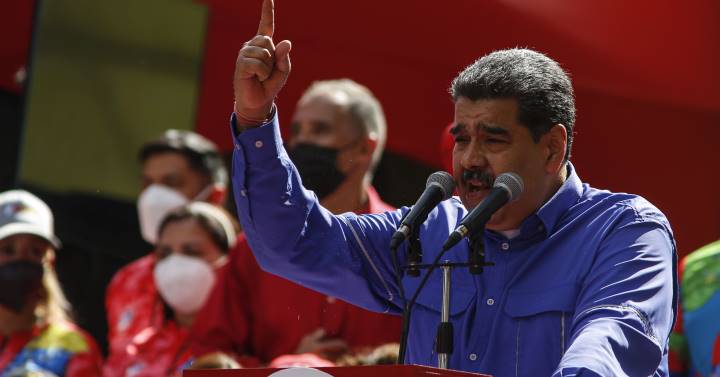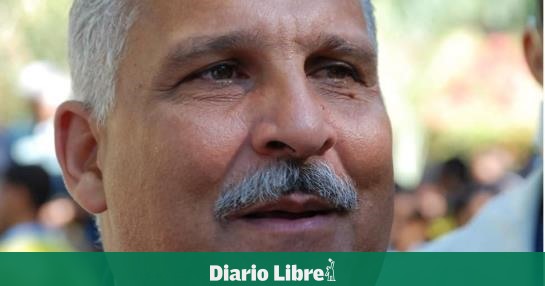The Peace and Justice Service (Serpaj) recommends closing two centers of the National Institute for Adolescent Inclusion (Inisa) after verifying cases of “torture, cruel, inhuman and degrading treatment towards adolescents deprived of liberty”said the organization in a report to be presented to the United Nations (UN) Committee Against Torture.
The institution, which produces annual reports on the defense of human rights in the country, maintains that the maximum security center for people over eighteen (MD1) and the Comprehensive Temporary Treatment Space (ETTI) must be closed, as reported by La Diario and confirmed by El Observador. Cases of torture were also recorded in the Piedras center, in which it is in charge of Pre-Egress, and CIAM.
From the organization they understand that this situation has been “sustained over time” through several administrationsand maintain that in the current government “priority has not been given” to Inisawhich even suffered a rreduction of your budget in 2021indicated Mauricio Vázquez, part of Serpaj’s visiting team, to The Observer. “The situation was never good”lament.
In addition to torture, there were recorded “compulsive confinement practices” of up to 23 hours, cases of beatings, searches with physical violence, reductions, threats, insults and mistreatment. Serpaj denounces that “the system is marked by the reward-punishment logic”, and that the establishments have “serious building deficiencies”.
To all this is added a “high number of self-removal attempts” reported in institutes. Vázquez stressed that mental health is one of the most pressing problems in the centers, due to the “pathologizing and medicalizing logic” of psychiatric care clinics known as “API”. Is about “isolated places” where “priority is given to punishment” and “inhuman, cruel and degrading treatment” is givencriticized the Serpaj member.
“Socio-educational measures are subject to security measures” in the centers, criticizes the service, and adds that INISA “continues to enable discretionary practices in the directions of each center”.
Centers in sight
In the case of MD1, Serpaj collected complaints against director of the establishment, about which a teenager stated that had beaten him together with officials from the center “when he returned from a temporary outing”, points out the report, which adds that the fact is proven by other testimonies and a medical report.
Other problems of this center are also reported: more teens than beds, mice and rats on site, and people with “serious burns” from hot water product of conflicts between inmates that were not attended.
According to Mauricio Vázquez, in Serpaj they see MD1 as a center that is “worse” than several adult detention centers. “It is not a place to give social insertion to teenagers. With a 7-meter-high wall that doesn’t let you see the trees, you can’t have any positive stimulus“, declared the also human rights consultant.
In addition, in these centers there is a lack of human resources, which leads to the existence of more security workers than people dedicated to attending to the social situation of those deprived of libertyVazquez added.
On the side of the ETTI, its closure is recommended for having facilities with a “strong prison imprint” which generates that are not “suitable for adolescents who comply with a deprivation of liberty socio-educational measure”.
From Serpaj they do not agree with the imprisonment for 90 days of a teenager, because the measure “implies a cut and loss of their educational, work and/or recreational activities, the only meaning being the imposition of a punishment”, indicated in the report. The ETTI is a transitory center where most of the sentences are for that time.
complicated figures
From the Service they cannot give an exact number of the number of complaints that exist about this type of situation, because most of the complaints are made within the centers due to the lack of “mechanisms for making independent complaints” outside of these, Vázquez explained.
The member of the visiting team stated that many times adolescents refuse to file complaints out of “fear” or because “they are threatened not to report”. The fact that there are no approach protocols when treating these cases the situation worsens, he added.
So far, Serpaj has managed to bring a recent case to justice: that of the minor who had a skull fracture, according to the initial reports from Inisa, for falling from a bed half a meter high. In the organization they are sure that the fracture it was due to beatingVazquez explained.
Pandemic
for the Serpah the coronavirus pandemic worsened the situation of the centerssince it led to a loss of activities for inmatesand also in an rreduction in visiting hourswhich the Service understands led to “an increase in conflict” in “most of the centers”.
This context worsened with the lack of professionals in the centers due to medical licenses, common in times of long quarantines and strict isolation protocols. Anyway, Serpaj indicates that out of this there is a “low proportion of technical professionals” in Inisa’s Human Resources.
The Service rated “serious and worrying” that also within this sheet cSome of the workers summarily or investigated for “mistreatment” of adolescents continue deprived of liberty.
luc
The Law of Urgent Consideration (LUC) was also targeted by the Serpaj, because in his opinion “he deepened great setbacks in the regulations of juvenile criminal justice”and ask repeal six articles of the LUC dedicated to security, from 75 to 80.
For the organization the Increased minimum and maximum sentences for various crimesthe removal of semi-liberty rightsthe Permanence of criminal records for minors after turning 18 and the abbreviated process integration lead to the analysis that this law “deepens the proposals contrary to current standards and recommendations” by “international human rights conventions, treaties and standards”details the report.
Vázquez believed that the LUC changes changed the functioning of the prisons “for the worse”, with special emphasis on the extension of the maximum sentence to ten years for minor offenders. For the member of the Service, if an adolescent is imposed a decade in prison, it ends up “ruining the person.”







